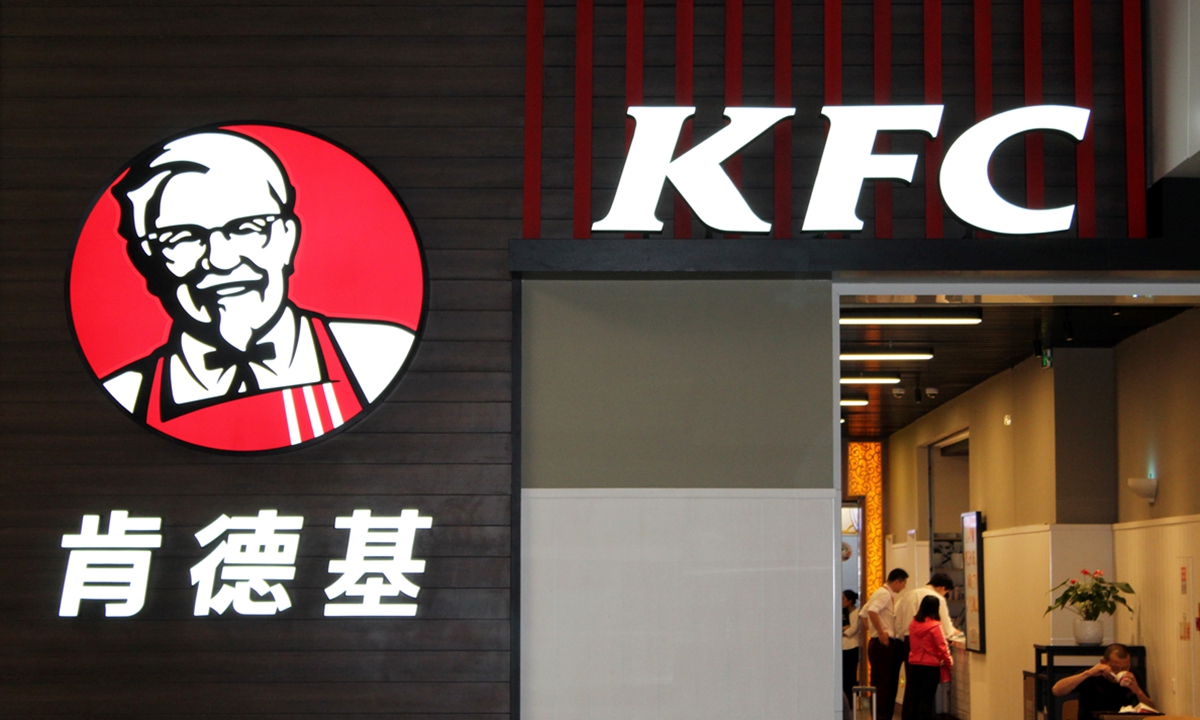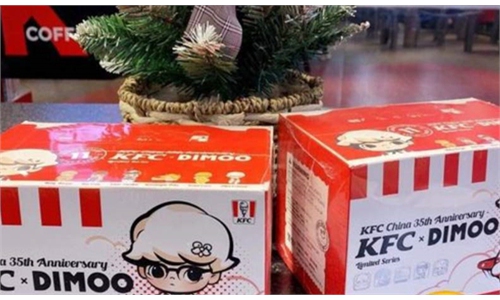KFC’s Psyduck toy makes waves online, with prices surging in second-hand market in China

KFC Photo: IC
Psyduck, a species of Pokémon that revolves around 908 fictional species of collectible monsters in Japanese gaming giant Nintendo, is going viral on Chinese social media as a toy marketed for the June-1 Children’s Day by Yum China-operated KFC restaurants.
Buying a designated package for the festival priced ranging from 69-109 yuan ($10.5-$16.6), consumers can get a random Pokémon co-branded toy, and a dancing Psyduck is one of them, according to KFC’s mini program on WeChat.
However, since the duck went viral on Chinese social media, toys in many KFC chain stores were out of stock both online and offline, and inflated prices appeared in the second-hand market.
The Global Times found on Tuesday that the prices of the duck toy shown on China’s leading digital flea market Xianyu.com ranged from 100 to 500 yuan, and some sellers even posted multiple stock photos of the duck.
A KFC customer service worker told the Global Times that the behavior of hyping prices is purely a private matter, which has nothing to do with the company.
Later, the KFC official app released an announcement, saying that the company did not support behavior that included selling KFC toys at a higher price, reiterating that the behavior is purely a personal matter, and has nothing to do with the company.
It added that the number of some of these toys are limited due to supply, logistics and other reasons, and that the company is managing limited inventory.
It is not the first time that KFC China promoted its food packages via “blind boxes.”
In January, KFC teamed up with Pop Mart, a Chinese toymaker known for its “blind boxes”, offering collectable versions of Dimoo toys with certain KFC meals in celebration of the brand’s 35th anniversary of its first restaurant in China.
The chance was remote for consumers if they want to have a full six-figure set in on go – with a 1-72 chance of obtaining the rarest toy in the lot.
The meal promotion came under fire as the China Consumer Association criticized that the fast-food chain’s limited-edition toys resulted in excessive food waste and compulsive overspending by consumers.
As a healthy lifestyle becomes a concern for most Chinese people, foreign fast-food chains tend to become less competitive, which are forcing them to leave the comfort zone and start some transfer-industry exploration, industry obverses said.
Yum China, the operator of KFC, reported a 44 percent drop in operating profit on a yearly basis to $191 million in the first quarter of 2022 from $342 million.
“While we generated operating profit in the first quarter, we experienced a loss for the month of March. Unless the COVID-19 situation improves significantly in May and June, we expect to incur an operating loss in the second quarter,” said Andy Yeung, CFO of Yum China.
Global Times


